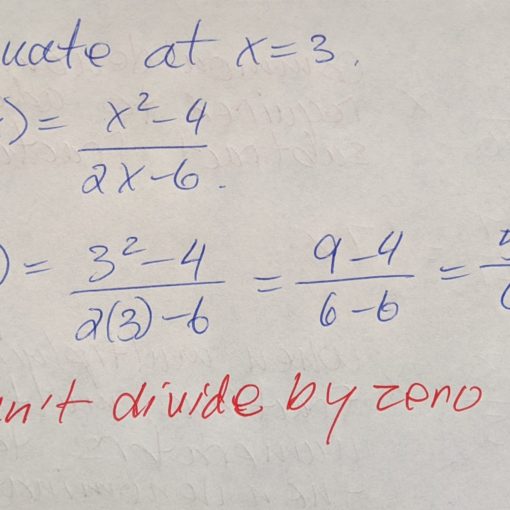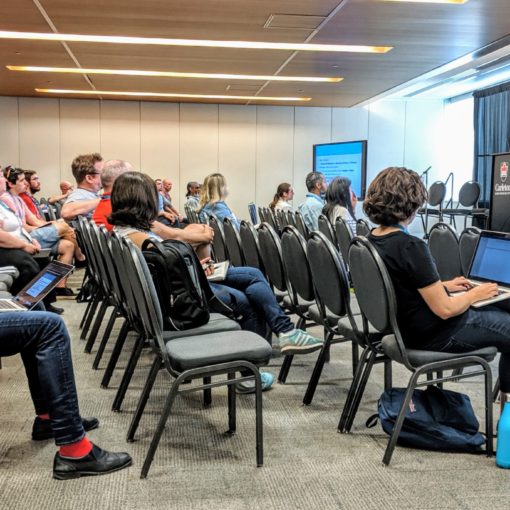I think most people associate getting good grades with knowing a lot and being smart which is then associated with being good at learning. This is not necessarily the case. I was taught very early on in university that learning and getting good grades are two completely different skills. And, I never completed a course having learnt as much as my grade reflected! Learning is tough in a short period of 12 weeks, especially when you’re trying to learn 4 or 5 different subjects and while being tested almost weekly in one of those 4 or 5 different subjects. After awhile your brain just can’t take anymore in. Unfortunately, you still need to keep going and performing on the tests, assignments, labs, midterms, essays, finals etc. So, somehow you need to figure out a way to get those grades even when your brain has decided to take a “me day”.
Trying to do a little bit each day or each week helps.
Getting good grades is a skill that takes time to acquire. Instead of letting the practice exercises pile up until the night before the midterm, do some each week. The best way to accomplish this is to go to the tutorials. In many of the sciences and maths there are tutorials where the TA will either go through exercises assigned in class or will provide time for you to ask questions about exercises assigned by the professors. Use that time. It may only be one hour a week and you may feel like something else is pressing at the moment but take that hour as your time to work on some of the exercises and homework for the course for that week. This will give your brain some exposure to the material.
Short period of exposure of the material regularly and consistently will allow your brain to absorb the material. In the long run, this will be valuable when it comes time to studying for finals rather than filling your brain up with all a whole lot of new material in a short period of time.
Professor and TA office hours
Your professor and teaching assistants have all the keys to getting good grades. For one, they know the material. And second, they will be marking your work. So, go to your teaching assistant’s office hours each week with at least one question. Whatever that question may be. Maybe it’s an exercise you’re having trouble with or an example you found confusing in class. Or perhaps you’re feeling adventurous and you read the textbook and have a question from there! Make that extra effort to push yourself to ask that one question each week. After awhile, it won’t be difficult to come up with a question. Start using the solutions to exercises from tests and assignments as a place to find questions. Apply this same strategy to your professor’s office hours each week. Now you have three different chances throughout the week to be exposed to the material in a week.
Methods of Evaluation
The sciences and maths and some of the social sciences will have terms tests and/or assignments to evaluate your progress. Some of the arts and social sciences will have readings, essays and/or presentations throughout the term to evaluate your progress. Many subjects will have midterms halfway through the term to help you evaluate your progress. Some of the experimental sciences will have weekly labs to keep you up to speed on your practical component of the subject matter. Getting good grades will depend a lot on the method of evaluation that is being implemented.
Labs
Labs are usually self contained and there isn’t much you can do expect prepare the prelab. Go over the experiment, set up any tables, get any formulas etc ready so that you have them on hand and aren’t searching during the lab time while you’re doing the experiment. The write up of the lab afterwards is usually done during the week that follows and that’s where you put it all together. But it’s during the lab that you will have to get all your results so begin simpatico with your lab partner is going to be valuable. Your lab partner is another person to keep your “rolodex of important persons”, or maybe just in your contacts list. Either way, your lab partner will be your lifeline or you theirs.
Assignments
Assignments usually tackle problems from the course material from the previous assignment up to the current assignment and usually the tougher more challenging problems. So this is a good place to get inspired to ask your TA and professor questions during those office hours and tutorial sessions. Even if you don’t understand what the assignment question is asking, ask that as your question! Get your tuition’s worth out of your university experience.
Tests
Your term tests will cover material from the previous term test up to the current one. However, the questions will be of a slightly less complex nature and do more to test your understanding and execution of key methods and techniques rather than push you to put various techniques and ideas together and solve a more complex and challenging problem that you would see on an assignment. In first and second year math classes it’s very common for students to ask if there will be proofs on the test. Some proofs are very simple and straightforward once you have seen them and usually your professor will go through them in class. So, these are fair game.
How to prepare for tests
Review term material
To prepare for these term tests, go through all the exercises assigned from the previous term test up to the current test; go over all assignment during that period; go through all the notes and examples for that period; go through any examples and exercises from the text during that period. It will be from here that you will most likely see similar questions on your test. A mid term exam is just that an examination of all the material from the beginning of the term until that mid point. It’s usually longer than a term test but shorter than a final exam. Go over everything from the beginning of term up to the current material. There will be a lot of material so it’s definitely worthwhile asking the professor if there are particular topics that will be covered on the midterm and other that will not. In some cases professors will do a mid term review. Go to that class. Review session are gold!
Old tests and assignments
It would be ideal if you could get your hands on old term tests, assignments and/or midterms to use as practice. There are many online resources for acquiring old notes, tests, midterms and finals exams. Some things to keep in mind, if you’re going to go this route, make notes of the instructors teaching the courses from previous years. If you can get a copy of the course outline that would be helpful for you because text books and references used in previous years may be different than what you’re using. In the arts, humanities and social sciences different instructors may take different approaches to teaching a topic and as a result not only use different text book but may also cover different topics.
Every professor has a particular research specialty and as a result has a bias to particular applications of the material they are teaching. This can sometime come out in the way they teach their course and some of the topics they choose outside of the basic course outline for the course material. This in turn effects what methods of evaluation they choose for the course. Some professors and even course have a reputation of being either harder or easier for getting good grades. Do some research before registering for a particular course, section and professor, if you can.
Psychology of professor
It was a math professor who told the second year class I was in to consider psychology when studying and preparing for test and final exams. I thought he was nuts but no, he made sense. Most professors will end up teaching a set of courses and will rotate teaching those courses and topics throughout their career. So there is a good chance there are final exams, test and midterms that they have written floating around out there. If you get a few of them, you will see similarities and there will be a good chance that your test, midterm or final will be very similar. If you can’t get hands on old test, midterms or finals, no problem. Take a close look at their notes, the types of examples they do in class and the term tests and assignments you have done with them and that will give you some idea of their “style” when it comes to writing and choosing questions.
Get the TA’s view
Your TA’s are an excellent resource for what the professor’s test writing “style” is like. There’s a good chance your TA has taken a course with this professor before so will be able to give you some direction on how to prepare for any test, midterm or final. I’ve seen students just ask the professor, what will be on the test, midterm or final. The professor doesn’t have to answer but you can bet the professor has been asked this question before and so has an answer and will indirectly give you clues. I would always tell students, there will be no question on a test, midterm or final exam that they haven’t seen before if they have done every exercise assigned, tutorial question and gone through every example in my notes. Those that listened carefully to what I said, did well, those that didn’t, struggled and some cases, I had the pleasure of meeting them again!
Learning vs Getting Good Grades Summary
Learning
Find ways to take in small bite sized amount of new knowledge and information regularly and consistently. Below are some suggestions.
- Go to lectures
- Go to the tutorials
- Do some of the homework problems assigned each week
- Ask at least one question during the TA’s office hour each week
- Ask at least one question during the professor’s office hours each week.
- Get to know your TA and professor
- If you can, read the material in the chapter for that week.
- Do the prelab as thoroughly as possible.
- If you’re able to work with other classmates, share to load above and get together throughout the week and discuss the material, even over lunch.
Something to keep in mind is that we all learn differently. So, as time goes on and as you progress during your university / post graduate studies, you’ll figure out what works best for you.
Getting good grades
Learning stuff in time helps with this but sometimes it’s not enough or there just isn’t time. That’s when other strategies and techniques have to be put into place.
- If possible, get a-hold of old tests, midterms and final exams to use as practice.
- Go through the examples and exercises done during the lectures.
- Learn the psychology of your professor and what kinds of questions they give.
- Learn the psychology of whoever will be marking, usually the TA, and understand how like to see a solutions to a problem and exercise.
- Talk
to the TA and professor during their office hours and ask them some questions. For example,
- What areas should I focus on when studying?
- Will there be questions like those on << Mention exercises that you find particularly challenging or are unsure of >>
- Is the test on material from the beginning of the term of since the last test?
- What sections does the test cover?
- Will there be proofs? If there are proofs, are there any in particular I should review?
Learning a subject doesn’t automatically imply getting good grades. The act of getting good grades is different skill but does require the knowledge acquired when you are leaning. It is a skill that is definitely worth developing while in university or college. The grades you receive in a particular subject fortunately or unfortunately, represent your knowledge to prospective employers. Sometimes that first term or semester is what it is. Learn from those mistakes and make a plan to get ahead in second semester. Check out our suggestions for how to get ahead in second semester.




